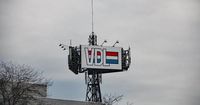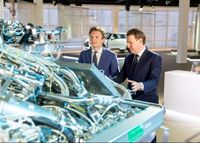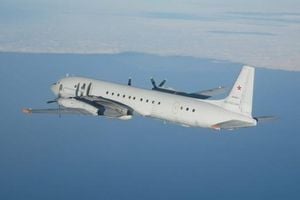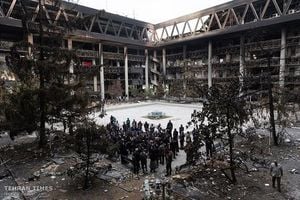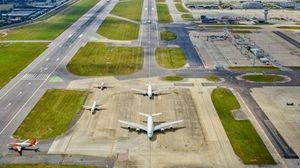VDL Nedcar's factory in Born, Limburg, marks a significant shift as it transitions from automobile production to defense equipment manufacturing. This new direction follows an agreement announced on March 17, 2025, between the Ministry of Defence and VDL Groep. The collaboration aims to establish multiple companies within the once-thriving manufacturing facility, focusing on producing military drones and vehicles.
Minister Ruben Brekelmans of Defence stated, "This will be a flagship of the renewed cooperation between Defence and companies." The Ministry of Defence has committed to covering some costs, including rent, to facilitate this transition. After VDL Nedcar ceased its car production for BMW in early 2024, resulting in the loss of over 4,000 jobs, the factory has remained idle, and the initiative marks a new beginning.
The partnership aims to supply the growing demand for military equipment amid increasing security concerns across Europe. Brekelmans explained that the armed forces need to enhance their capacities urgently, requiring everything from combat vehicles to advanced drones. He emphasized the need for more certainty, shorter delivery times, and reduced reliance on foreign nations in the process.
VDL’s collaboration with Defence is seen as a crucial step that will not only bolster national security but also generate substantial economic benefits. Brekelmans expressed gratitude towards VDL for stepping up, stating, "We are very grateful that VDL is willing to respond to our call. The collaboration will be a flagship of the renewed cooperation between Defence and companies." He stressed that this initiative presents a win-win situation—enhancing security and stimulating economic growth.
In recent developments, the European Commission has announced a robust strategy to reinforce the continent's defense capabilities, including an ambitious plan to allocate 800 billion euros over the next four years. This funding will come through European loans and revisions to the existing budgetary rules, signaling a strong commitment from European nations to fortify their military production capacities.
Willem van der Leegte, the CEO of VDL Groep, echoed similar sentiments regarding the importance of this collaboration. "Defence is calling on us and we take our responsibility," he noted. With over 100 development and manufacturing companies within the VDL umbrella, van der Leegte highlighted their competencies in industrialization, product development, automation, and assembly as pivotal to successfully scaling up military production.
As VDL begins to convert its facilities in Born, the Ministry of Defence plans to assist in more ways than just financial support. The Defence ministry is prepared to help identify businesses interested in collaborating with VDL to enhance production capacity. Moreover, they aim to consolidate demands across nations to ensure that orders are significant enough to allow for the establishment of sustainable production lines.
Throughout the years, the automotive assembly lines in Born have been synonymous with quality and reliability. Now, this legacy is poised to evolve as military production takes precedence. The urgency for a self-sufficient European defense sector has come to the forefront, particularly in light of geopolitical uncertainties and rising global tensions.
The ongoing conflict in Ukraine, initiated by Russia, has exposed vulnerabilities within European defense supply chains, prompting nations to rethink their dependency on external arms suppliers. This factory's new role in the production of military equipment aligns with broader European goals to strengthen the local defense industry and decrease reliance on foreign defense manufacturers.
As demand swells and military priorities shift, VDL Nedcar's transition to defense manufacturing represents not just a transformation of a factory, but a pivotal moment for the Dutch economy and its defense infrastructure. If the collaboration between VDL and the Ministry of Defence unfolds as planned, it stands to create numerous new jobs and innovation opportunities in Limburg while stabilizing Europe’s military capabilities.
Looking ahead, this collaboration showcases the capacity for industries to adapt in face of changing needs. In these uncertain times, such partnerships embody hope for a synchronized approach towards security, innovation, and economic resilience within the Eurozone. The factories of Born may once again hum with life, this time producing the vital equipment necessary for safeguarding the future of nations.
